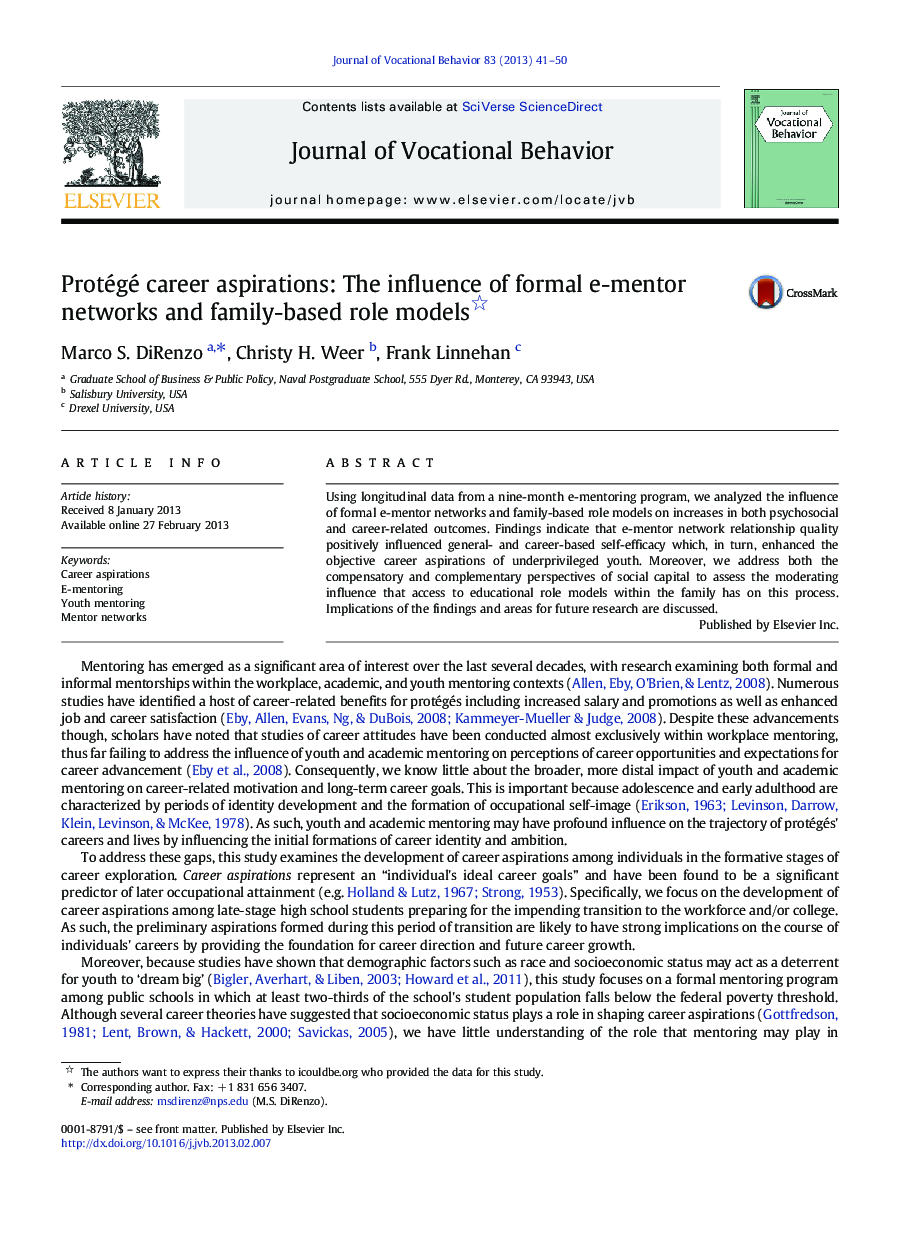| Article ID | Journal | Published Year | Pages | File Type |
|---|---|---|---|---|
| 886922 | Journal of Vocational Behavior | 2013 | 10 Pages |
Using longitudinal data from a nine-month e-mentoring program, we analyzed the influence of formal e-mentor networks and family-based role models on increases in both psychosocial and career-related outcomes. Findings indicate that e-mentor network relationship quality positively influenced general- and career-based self-efficacy which, in turn, enhanced the objective career aspirations of underprivileged youth. Moreover, we address both the compensatory and complementary perspectives of social capital to assess the moderating influence that access to educational role models within the family has on this process. Implications of the findings and areas for future research are discussed.
► Longitudinal analysis from a nine-month e-mentoring program ► Career aspirations increased as a result of the program. ► Mentor network relationship quality enhanced protégé self-efficacies. ► Educational role model moderated the relationship between relationship quality and self-efficacies.
